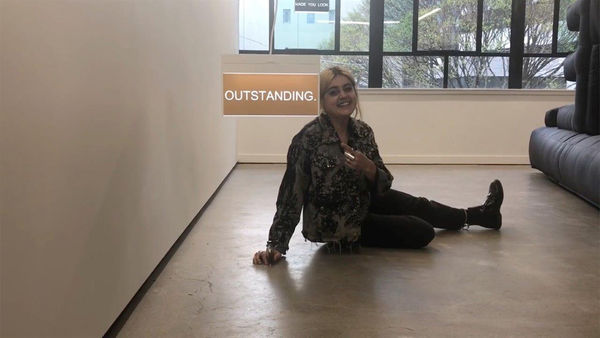Elisabeth Pointon, WHERE TO FROM HERE
Elisabeth Pointon is an early-career artist from Te Whanganui-a-Tara. Her work has been exhibited at a number of significant institutions, including the Dowse Art Museum in Te Awakairangi, Christchurch Art Gallery Te Puna o Waiwhetū, and City Gallery Wellington Te Whare Toi. She is best known for her event-based and sculptural works, which centre on text, and relate to her long-term day job at a car showroom. Pointon riffs on physical advertising devices, such as banners, blimps, and flailing tube men. The phrases she favours—‘BIG DEAL.’, ‘SPECTACULAR.’, ‘PHENOMENAL.’—are the ebullient language of sales floors. She tends not to recreate longer slogans, but keeps her expressions tight, allowing the complexity of fairly minimal bits of language to be explored. She embraces slipperiness, but also retains a keen interest in the potential of collective understanding and action.
In WHERE TO FROM HERE, she continues her exploration of the complexity of small fragments of language. She embraces slipperiness but also retains a keen interest in the potential of collective understanding and action, inviting audience-members to consider what responses might be required in a time of economic, environmental, and health crises.
An important element of Pointon’s practice is institutional critique. She responds to the failings or limitations of galleries, gallerists, and curators in ways pointed and subtle. As a queer woman of colour, she recognises that artists like her are still shown relatively seldom by public institutions, and are constantly at risk of being side-lined or tokenised. She creates works that are bold and outlandishly grand, seizing opportunities to occupy the most space that she can, and pushing the limits of what an early-career artist with limited resources might be expected to achieve. WHERE TO FROM HERE involves a broader critique, not only questioning what it means to hit the ‘big time’ in the art world, but also inviting audience-members to consider what kinds of response might be required in the present moment—a time of massive economic, environmental, health, and social crises.












